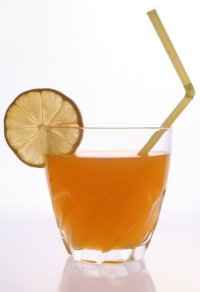
Forget for a moment the familiar labels in the whiskey world. No more Jim Beams, Canadian Mists, Glenfiddichs and the like.
Not that they are going to disappear from vendor shelves, but if you look past the obvious you may be seeing several newcomers looking to create, and then fill, some consumer niches.
Take
Piedmont Distillers, for example. The Madison, NC, operation is the state's only legal distiller, yet its biggest push is for something it calls Catdaddy Carolina Moonshine.
If you're old enough to remember film icon Robert Mitchum, the label may conjure up images of him driving dusty backroads in his '51 Ford, trying to evade federal agents as he transported moonshine from place to place in 1958's "Thunder Road."

If that's too far back for you, then just go for the novelty of it all -- a clear whiskey made from an old recipe for an illegal mix, yet now fully legal and made in small batches in copper stills in the foothills of the Blue Ridge Mountains.
Piedmont is keeping the formula under wraps, but traditional moonshine used corn mash, a mixture of corn, malt and sugar. And this particular product ($19.95) is sleekly packaged in a tall, glazed bottle rather than the traditional clear moonshine bottle or jug.
Across the Atlantic, a tradition much longer than that of moonshine making was revived several years ago when the
Welsh Whisky Co. (no "e," please) was created. That returned the manufacture of single malt whisky to a land that had done it for centuries, then let the art die out.
The company recently installed a 'round-the-clock production process that will allow it to increase the output of its Penderyn whisky by half, to a quarter-million bottles a year.
What that means is that the company will be able to moves its products to vendors in the United States and elsewhere at a greater rate than before. Company chairman Brian Morgan said it has been exporting a mere 20 percent of its Penderyn.
If your taste runs in directions other than the brown whiskies, and if you prefer having the beverages brought to you rather than having to seek them out through a spirits vendor or helpful middleman, keep an eye on what several other foreign producers are shipping here in large numbers.
Jose Cuervo International, riding the crest of the tequila boom, is coming out with three flavored tequilas -- citrico, oranjo and tropiña. All have a blend of fruit flavors, with lime the dominant one in citrico, orange in oranjo and pineapple in tropiña.
They'll be released in major U.S. markets in June and July, then begin nationwide distribution. They'll be available in various sizes, priced from $16.99 to $18.99.
Not to be outdone in the competition for consumer dollars, more and more flavored vodkas are hitting the market.
Absolut, for example, is releasing its eighth flavor, ruby red grapefruit, in June.
Fris vodka, owned by the same company that owns Absolut, is letting cocktail club owners and consumers get into the act with its infusion program.
In addition to its original, lime and apple flavors, Fris is supplying key test establishments with three-ounce servings of vodka infused with a wide range of flavorings running the gamut from sweet and exotic to savory and dry.
The year-long program is being overseen by Ryan Magarian, a mixologist with a growing reputation that was enhanced when Food & Wine magazine selected him for its 2004 list of "34 under-35 Tastemakers."
Magarian's tips on infusions -- using such disparate flavorings as coriander, cranberries, pears and cumbers -- are available
online.
To Dowd's Spirits Notebook latest entry.
To Dowd's Wine Notebook latest entry.
To Dowd's Brews Notebook latest entry.
Back to Dowd's Bar Blog



